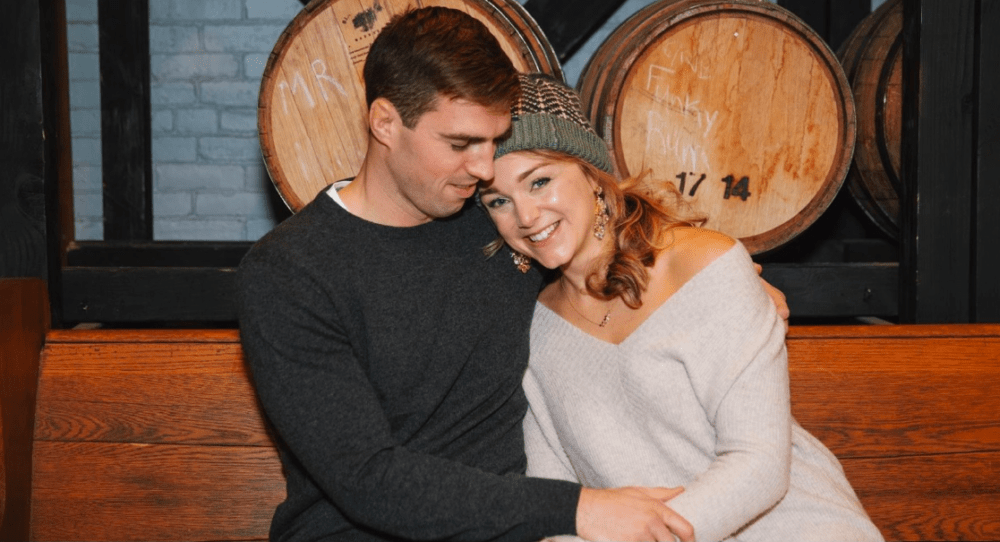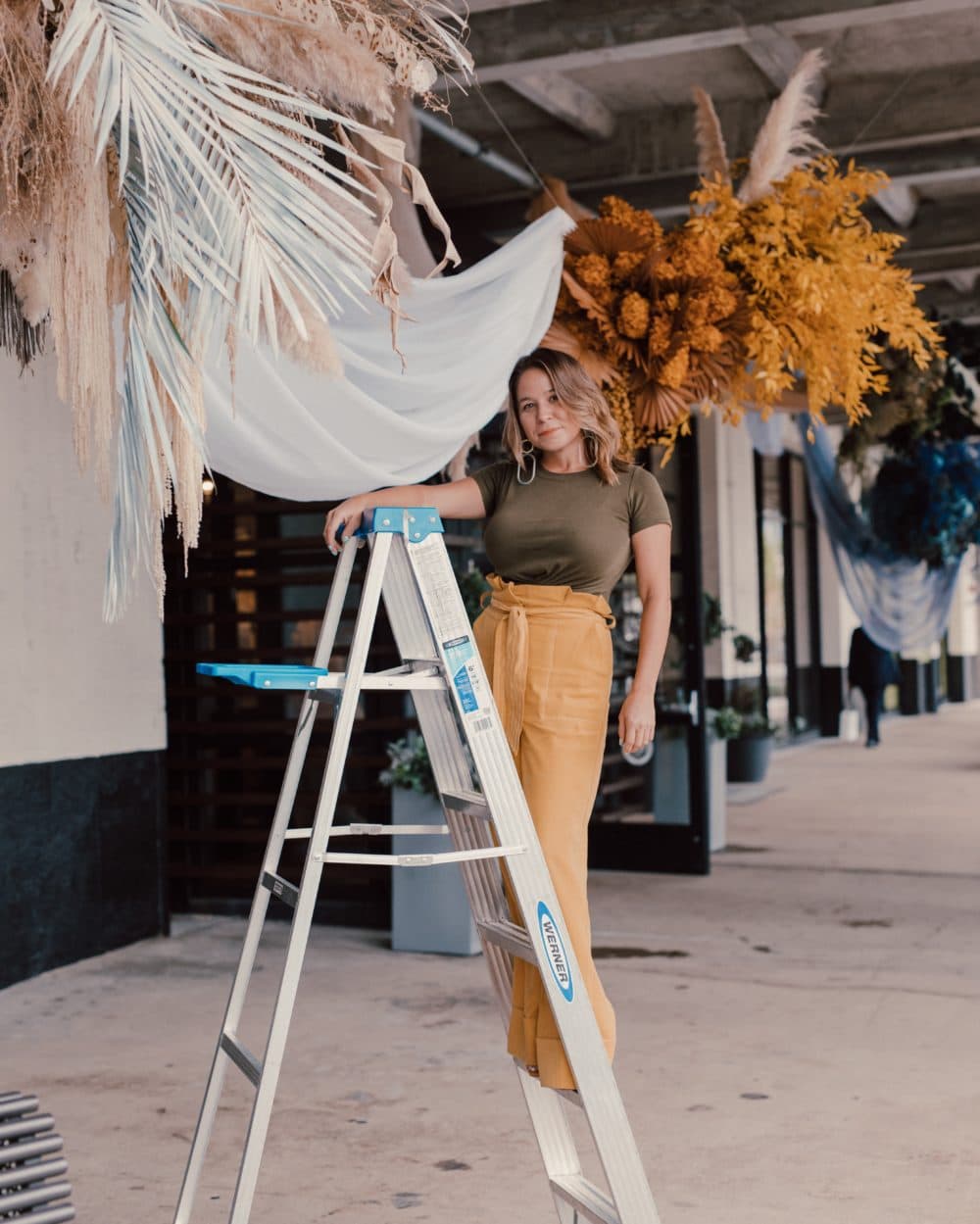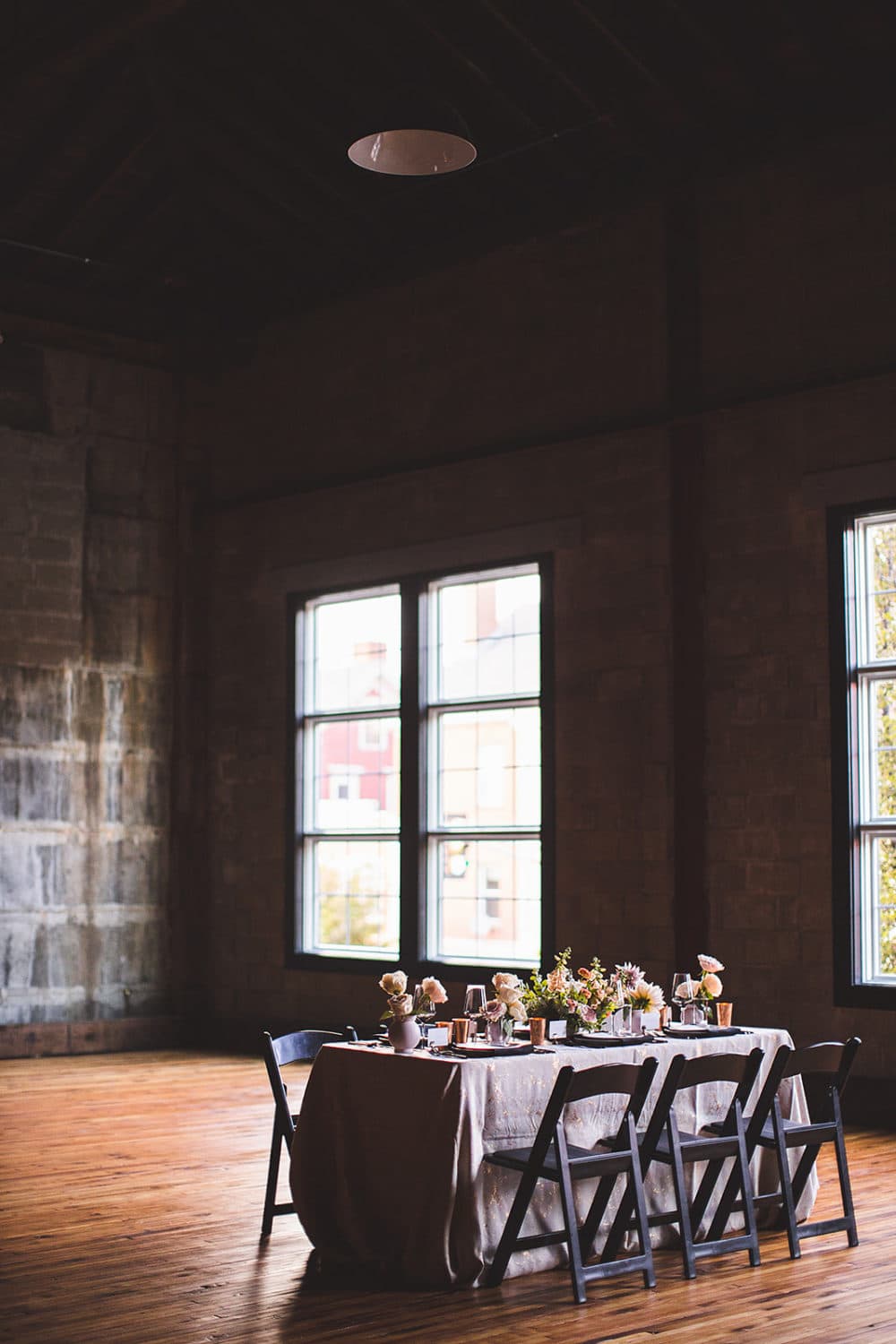Advertisement
Elopements And Micro-Weddings: How Couples And A Battered Industry Are Tying The Knot In A Pandemic
After getting engaged at the end of last year, 29-year-old Julia Kaneb pictured herself and her fiance Kyle Minogue tying the knot under the summer sun. She remembered thinking, “I want to be outside, I want my feet to be bare.”
Now Kaneb will definitely be wearing shoes on the big day because it's been moved to December. As she and her wedding planner Mandy Connor anxiously waited for Gov. Charlie Baker's phase three announcement, they created three different headcount scenarios — the ideal being 200 guests at a country club. On Zoom, Connor had to break it to Kaneb that all indoor events in Massachusetts can only be 25 people until there's a vaccine.
Kaneb paused, then responded with a resigned “alrighty.”
“It's not the news that I ever want to have to deliver to anyone,” Connor responded, “And honestly, sitting here waiting to log in, my heart was in my throat.”

This is one of the many difficult conversations the planner is having with her clients. Eight out of the 10 events Connor secured for 2020 have been pushed to 2021. But Kaneb's wedding is now hard-set for December. That's when her future groom, an Air Force trainee in Texas, is allowed to come home for just 10 days. She hasn't seen him since April and her work as a traveling oncology nurse in Vermont is physically and emotionally draining.
The words "I do" are being exchanged a lot less this year because of the coronavirus. Large wedding ceremonies and lavish receptions have been postponed and canceled, leaving countless couples – along with the entire industry – in a tailspin.
200 save-the-date cards already went out, and when Connor asked Kaneb how she felt about a smaller wedding she replied, “I think I was right to just not really get my hopes up all of these months. The only disappointment is that, you know, we both come from big families.” Not being able to have everyone there, she added, is going to be really tough.
Advertisement
“You know, the wedding industry is scrambling, and we're coming up with new ways to livestream and to have other people be able to join,” Connor explained. “Certainly, it's not going to be the huge event that you had envisioned and I'm so sorry. I'm so, so, so sorry.”
Gone are the days of the 150-person weddings that have fueled Connor's industry for decades. For now, there will be no more long buffet lines and crowded dance floors. But folks are still finding ways to get hitched.
“You're seeing a lot of elopements this year,” Connor said, so planners are offering “elopement packages” in addition to “micro-weddings" like Kaneb's. But even with the potential for all the nuptial bells and whistles, the scale and budgets of these events are greatly reduced. Connor worries about her 10-year-old company's future. She's also concerned about the thousands of wedding vendors now out-of-work, including videographers, musicians, bakers and caterers.
“This is a cottage industry of small businesses. It's artisans,” Connor said, “and when you see that your entire year's income has dried up, it's very scary.”

Floral designer Krissy Price relates to those fears. “It's a moving target still, and may be for years to come,” she said with a nervous laugh, “so flexibility is the number one survival mechanism right now.”
Pretty much all of the events Price scheduled for her company Boston Pollen have also shifted to 2021. She said she joined a Facebook group of florists hoping to band together so they can weather the storm.
“Most of it was dedicated to how do we roll with these punches? Or what are you hearing? Or who's applying for this loan,” she recalled “Or where do I go now? Who's had success at what bank?
With all the postponements and no prospect of new bookings, Price resorted to selling paintings of flowers through Instagram instead of arranging them. She hopes micro-weddings will help her get through 2020 and said she sees the imminent, more intimate affairs as both financial and artistic opportunities. The designer looks forward to creating especially photogenic floral displays for couples – from decorated ceremony arbors to edgy, eye-popping table installations – since images will be the way newlyweds can share their special day with people who can't be there physically.
Also important, Price added, is incorporating safety protocols for guests and on-site vendors.
“You know there are plenty of ways to make hand sanitizer look aesthetically appropriate on a table,” she said, “there is no reason that there shouldn't be hand sanitizer involved in your tablescape.”

Venue owner Sarah Narcus installed sanitizer stations as part of her COVID-19 plan. And she just started offering micro-wedding packages to stay afloat. She and her mom opened Olio in 2018 after a more than $1 million renovation. They're reeling after losing dozens of previously scheduled events.
“We have no other revenue source other than people coming together,” Narcus said.
Her 6,000-square-foot event space was on track to turn a profit this year, but now she estimates $100,000 in losses because it's been largely empty since mid-March. Narcus pointed to a newly formed alliance of Massachusetts wedding businesses that sent a letter to Governor Baker on July 13 laying out a long list of "catastrophic" financial challenges racking the $1.4 billion-a-year industry.
“This is not small dollars,” Narcus said, “and that only accounts for the weddings themselves. It does not account for the corollary tourism industry – the hotel blocks, the rehearsal dinners and Sunday brunches and all the travel that goes along with those weddings.”
It's also frustrating that surrounding New England states have more lax rules for events. Narcus's space in Peabody is not far from the New Hamphire border and she said some couples are opting to take their weddings north instead.
The ripple effects are understood by people in the wedding industry, but not necessarily by their clients, said Myriam Michel. She founded M&M Elite Events in 2009 and said it's been challenging to respond to clients' questions about deposit refunds for bumped or canceled events she's already invested hours into designing.
“That's a lot of bandaids and boo boos that we're working with right now as event planners,” she said, adding, “it's a headache, it's no one's fault...but it's a hard conversation to have.”
Michel feels for couples who are navigating the new coronavirus reality to get married this year. Even with all the heartache bride-to-be and nurse Julia Kaneb said she and her fiance are ready.
“We can't postpone forever,” she explained, “we want to start our lives.”
Especially now, Kaneb added, because no one knows what the coronavirus will do next year.
This segment aired on July 16, 2020.
